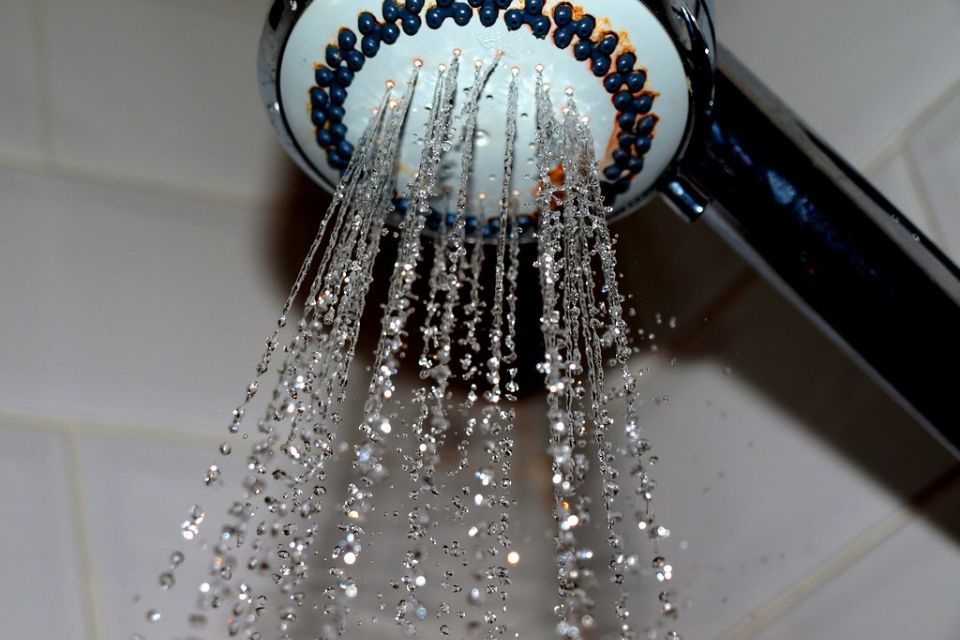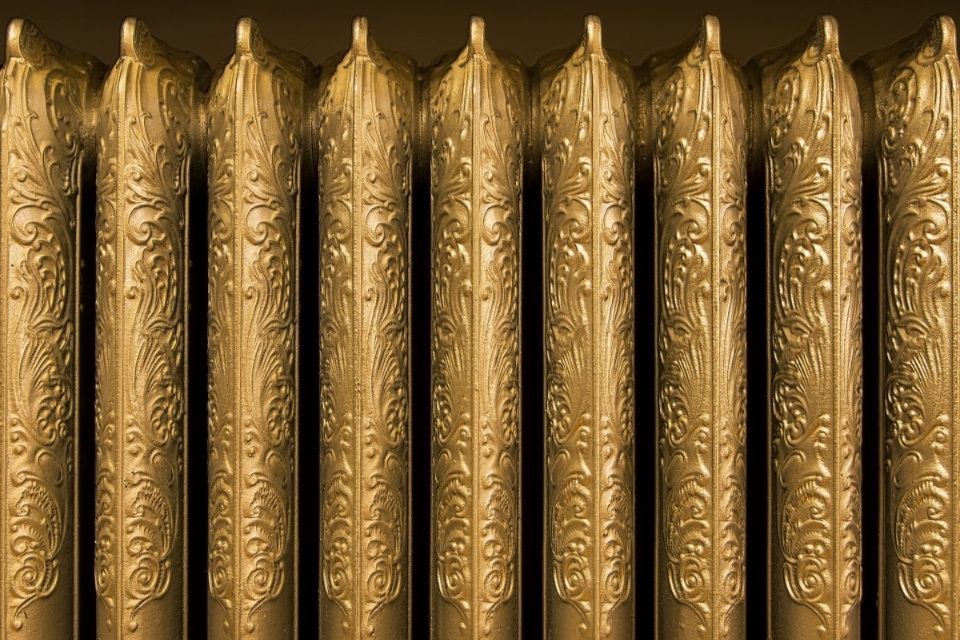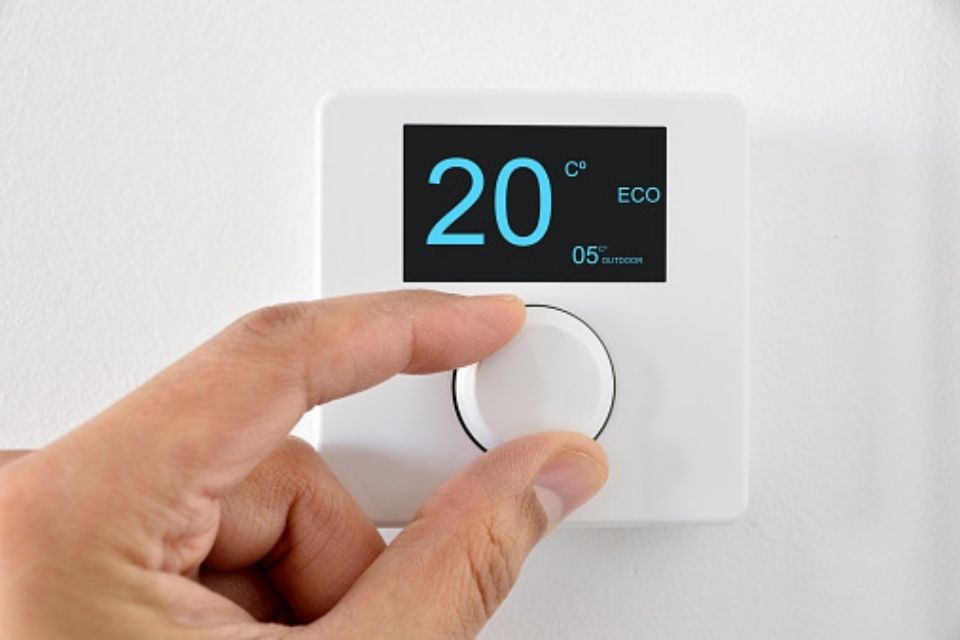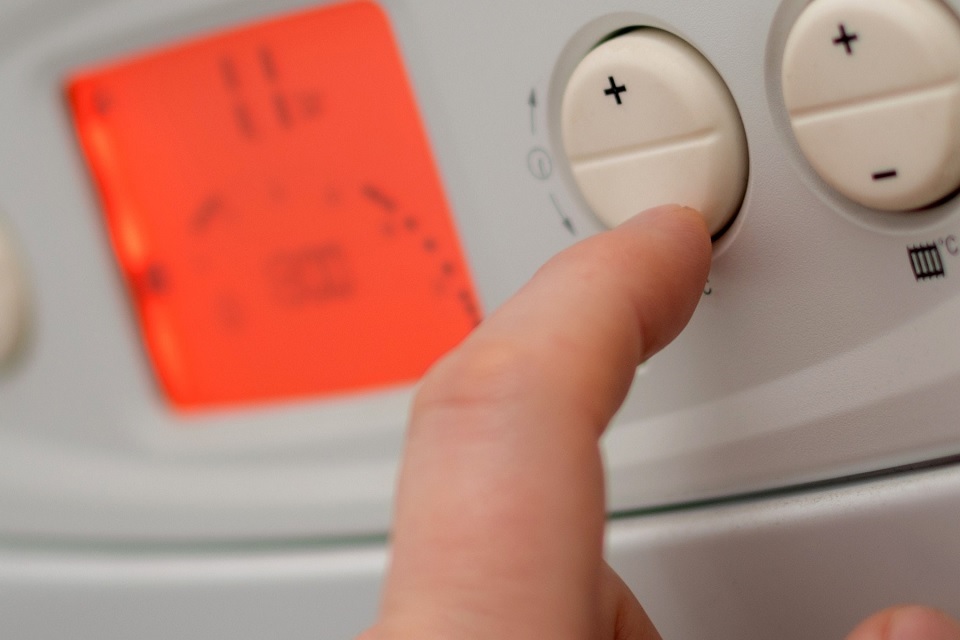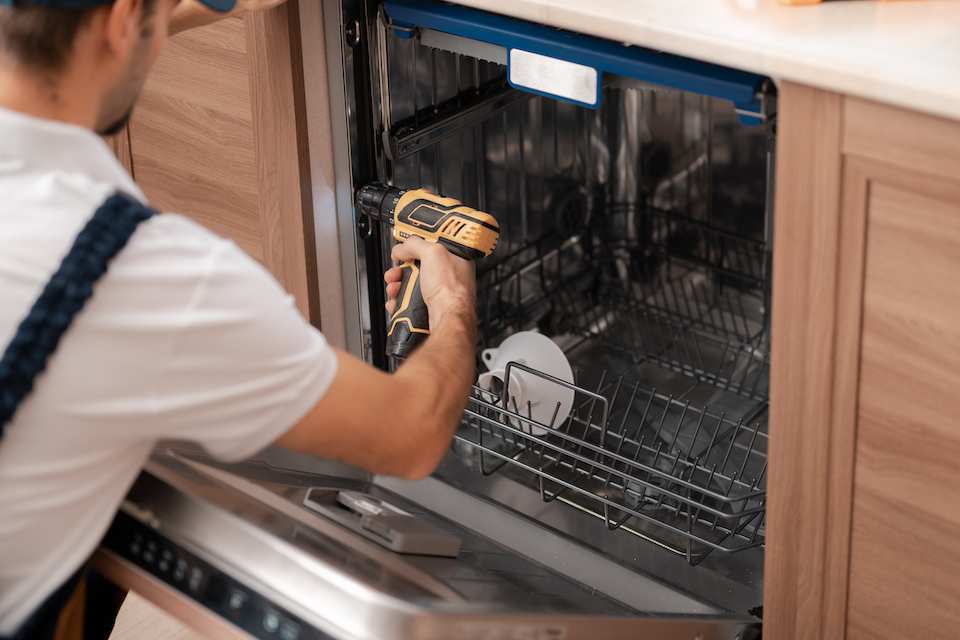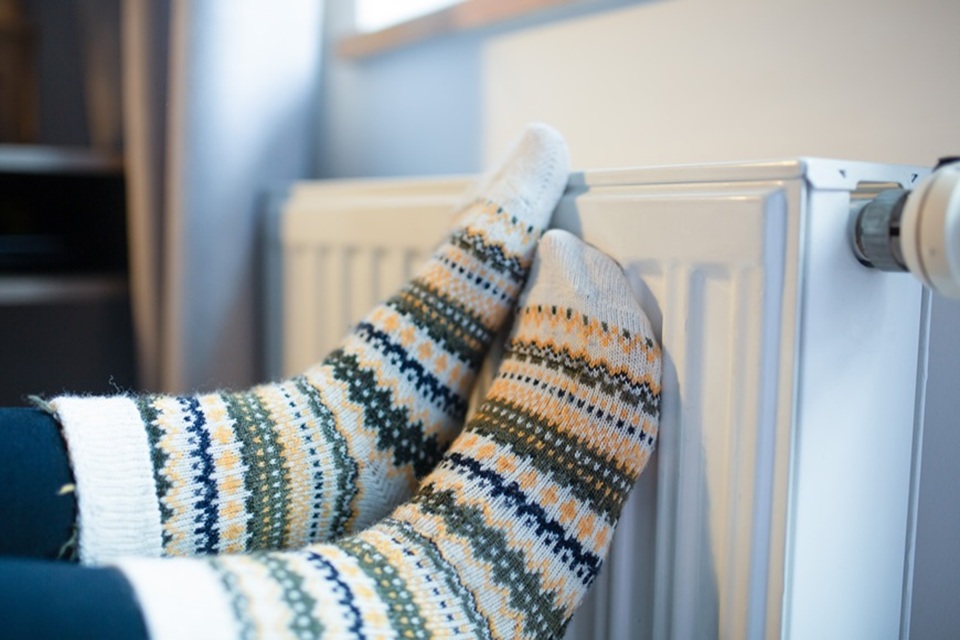What is a Mixer Shower?
For this section we will discuss what a mixer shower is. We will also look at how this type of shower works. A mixer shower is one that combines hot and cold water to achieve a desired temperature.
The functioning of this shower entails water of contrasting temperatures being extracted from your supply before they are mixed inside a valve where the preferred temperature is reached. The water then enters the showerhead and pours out. Mixer showers are generally used in households with high or low water pressure.

Mixer showers can work either as one which is exposed with the whole unit mounted to a wall or obscured with the valve being visible while the general pipework of the shower is located inside the wall.
Since mixer showers depend on combining two household water supplies, they are susceptible to extreme temperature changes if suddenly water is being used elsewhere in your home.
What is an Electric Shower?
Another common shower type is an electric shower which we will discuss in this section. We will explain what an electric shower is and how it works.

This type of shower electrically heats water before providing it to you through the showerhead. An electric shower takes water from your cold-water supply before heating it using an internal heating element. Electric showers can rapidly heat water.
Why is Your Mixer Shower Not Working?
We will now look at different problems which a mixer shower might have. In this section we will discuss various problems which may arise such as a leaking pipe, a lack of water or that the shower is running too hot or cold.
This section also lays out the signs you may notice with each given issue.
Poor Water Pressure
A common issue for showers is poor water pressure. This may be explained by a problem in your household or it could be related to the supplier or other external factors. Poor water pressure may be the result of a dirty showerhead or obstructed pipes due to dirt and limescale.

Sometimes water pressure being poor is down to the water being supplied to your home which can be influenced by factors such as how far you are from the source of your water supply, how much water is being used by your neighbours and how hilly your local area is.
Signs that you have poor water pressure include the shower and other water facilities in your home providing low flowing water and that it takes a long time for water to fill your washing machine.
Leaking Pipe
You could have a leaking pipe which may or may not noticeably reduce the water pressure coming out of your shower. Leaking shower pipes may result from failing plumbing structures and will often be found in close proximity to the showerhead and faucets.
These types of leaks if left unnoticed or unresolved can cause significant damage to your home. This is the sort of problem that should be dealt with as soon as possible.
You may notice water dripping onto the floor of the room directly below your bathroom. Other indications of shower pipe leaks are dried stains present on the ceiling directly below the bathroom and that the tile just beyond the shower valve is softening over time.
No Water
A frequent explanation for a lack of water coming from a mixing shower is a blocked showerhead. Limescale and dirt building up inside the showerhead can prevent water from coming out.

Faulty valves or damaged pipes may also prevent water from reaching the showerhead.
If it is a continuous problem then a fault, damage or blockage is the likely explanation. However, if the issue comes and goes while affecting your entire household then this may be a sign that the issue is with your water provider.
Intermittently Running Hot and Cold
This issue may be explained by a blockage in the showerhead or in the inlet filter. It might also be the result of a damaged shower hose or because the non-return valve has malfunctioned.
If you have a combination boiler setup this may be a sign that one of the potential causes listed above is behind the problem.
If you notice poor water flow from your showerhead but the taps are working fine, this is another sign that one of the aforementioned causes is the culprit.
Running Hot
If your mixer shower is running hot on a permanent basis, the most likely explanations are inlet filter blockages, or the non-return valve has malfunctioned.
Another possible cause is a faulty thermostatic valve cartridge. If this problem is present, the water will never or rarely run cold.
Running Cold
As with a mixer shower running permanently hot, if its water flow is always cold, the same explanations as discussed in the previous subsection could apply. If this issue exists, the water will never or almost never heat up.
Dripping Water When Shower is Off
When it comes to mixer showers, water dripping after you’ve turned the shower off is a common problem for plumbers to deal with. In most cases, issues with the seal, flow cartridge or thermostatic cartridge are behind this problem.

Issues with either of these may also affect the water flow coming from your showerhead. If you find that water continues to drip from the shower even with the shower taps turned off fully, then the possible explanations mentioned above are among the likely causes.
Why is Your Electric Shower Not Working?
If you have an electric shower some of the issues you could run into include tepid water, a failure of the shower to turn on or a smell of burning. In this section we will look at these problems among several others and discuss the signs you may notice with each of these issues.
No Water
If your shower is providing no water or suddenly stops supplying water during a shower, the issue may be the solenoid valve. If the coil inside the valve breaks, the valve will lose its function to open.
Signs that this is the problem include that your taps are working fine but the shower is not and that you noticed the shower stopping suddenly on previous occasions before it stopped providing water entirely.
A blockage in your pipes or that the shower pump is not working (if you have a power shower) may also explain the lack of water.
Leaking
Leaking may occur in the pipework of an electric shower. As with a mixer shower signs that this is happening are a dampened ceiling directly below the room with your shower or water dripping from the very same ceiling.

Alternatively, an electric shower leakage may be more obvious if it is coming from the bottom of the shower unit itself. This can happen due to a build-up of pressure.
A blocked shower hose may cause this increase of pressure and the pressure relief device inside the shower will cause the water to leak out.
Tepid Water
Another problem which can emerge with electric showers is that they only provide lukewarm water. This can be the result of power failing to make it to the shower’s pull cord switch. A burned out or faulty shower switch usually explains this problem.
In other cases, the heating element may not be heating up the cold water as it is designed to. A sign of this issue is that the water remains consistently tepid.
If the shower is particularly old or/and has had other issues in recent times, then these may also be signs that there is an issue with the pull cord micro switch or heating element as this would suggest a shower that is in decline.
Unreliable Water Temperature
An issue with the water flow may cause rapid temperature changes from very hot to cold and vice versa. One possible cause is that the mains valve of the shower is not open fully. You should also inspect the cut-off tap to the appliance.
If the shower’s water stays at the desired temperature for a noticeable period of time but then suddenly experiences temperature fluctuations, this is evidence that the potential causes mentioned are behind the problem.
Another sign may be that the shower is old or/and has had other problems over time. This may suggest that the shower is accumulating problems.
No Hot Water
If you find that the hot water is not working in the shower, it may be explained by the shower’s safety cut out feature. An overheating electric shower has a safety cut out device installed to prevent the water causing burns.
The cut-out feature may be faulty and is therefore mistakenly preventing any hot water from making it through.
Among the signs that this is the reason for the problem are that there are no issues present with any other water usage in the household and that the water pressure from the showerhead itself appears to be fine. Of course, a problem with the heating element may also explain this issue.
Trip Switch Keeps Turning Off Shower
If the trip switch is consistently turning your shower off this may be due to an issue with the switch itself or because the shower is causing a spike in electrical activity. If the latter is the problem, then this may mean the shower has a neutral to earth fault or that one or more of its parts (such as the heating element) has worn and become faulty over time.
A neutral to earth fault means that a current is leaking through the neutral end of a circuit which causes the current to earth. It may also be that water is making contact with the shower’s wiring which can be especially dangerous. If there is an issue with your RCD, then you may notice that it trips even when the shower is off and that multiple appliances seem to be causing the trip.
However, if the problem only arises when your shower is on then it’s almost certainly down to your electric shower. Either way, you should promptly contact a professional.
Smell of Burning
If you notice a burning smell coming from your shower, it’s important to deal with this problem immediately as it may represent a fire hazard. The boiler and shower using electricity at the same time can lead to a burning smell.
Another possible explanation is a faulty component inside the shower or an issue with the heating element. A loose connection can lead to overheating and burning.

The main sign of this problem is of course a burning smell but burn marks on or near your shower may also suggest that one of the aforementioned issues are present.
Shower Won’t Turn On
You may find that the electric shower switch is not working as your shower fails to turn on.
A faulty solenoid valve coil is generally the reason for this problem. As opposed to a lack of water being caused by say a blockage, this problem involves the shower’s electrics not turning on at all.
The light on your shower failing to turn on points to a solenoid coil fault. Another sign that this is the explanation is that water usage throughout your home is working normally but only your electric shower is malfunctioning.
Mixer Shower Repairs
For this section we will consider repairs for issues associated with a mixer shower. We will break down possible solutions to the problems that we discussed earlier. If you are cleaning out any shower parts, you should turn off the power for safety reasons.

Poor Water Pressure
If the cause of low water pressure with your shower is explained by a build-up of dirt and limescale in the pipes or showerhead, then cleaning them out should solve the problem. If not, you should investigate whether the cause is due to external factors.
You should contact your water provider to establish if the poor water pressure is explained by reasons such as your distance from the supplier or the geography of your surrounding area.
It could be that there is a deeper problem with the pipework in your home. If this is the case, you should hire a professional to diagnose and hopefully solve the problem.
Leaking Pipe
Once you notice the signs of a leaking pipe in your home, you should contact and hire a professional as quickly as possible to prevent any serious damage being caused.

A plumber can be hired to investigate and solve the issue whether it's a problem with your showerhead, faucets or the internal pipework.
No Water
If a blocked showerhead is the cause of this issue, then simply cleaning it out may be the solution. If this doesn’t work, you should hire a plumber to take a look at your shower and pipework.
They may suggest and provide a new valve for your shower or alternatively repair some of the pipes inside the wall in order to solve this problem.

Intermittently Running Hot and Cold
As with a lack of water, a blocked showerhead may be the cause in this case too and cleaning it out might solve the issue. If this doesn’t work, try cleaning out the inlet filter.
If you still have no success, you should hire a professional as they may need to repair or replace a shower hose or the non-return valve if either is found to be faulty.
Running Hot
A mixer shower that is permanently running hot may be fixed by removing any blockages found in the inlet filter or non-return valve.
If the cause is that the thermostatic shower valve is not working, you will need to buy a new one although the cost of a replacement in some cases can be higher than that of a new shower.
Running Cold
The same solutions can apply for a mixer shower that is always running cold by first cleaning out the inlet filter and non-return valve.
Once more, if you find that a faulty thermostatic cartridge is the issue, you should weigh up whether having a new valve installed is more affordable than buying a new shower entirely.
Dripping Water When Shower is Off
If you are experiencing this problem, you should hire a plumber. They will most likely solve the issue by installing a new seal, flow cartridge or thermostatic valve cartridge.
Electric Shower Repairs
We will now examine possible repairs for a range of issues that can arise with electric showers.

In this section, we will delve into fixes for the problems mentioned earlier including tepid water and a smell of burning. If you are cleaning out any of the shower’s parts, first turn off the power for reasons of safety.
No Water
If there is no water coming through the showerhead, first check that no visible parts of the shower such as the showerhead are blocked. If there are no obvious blockages, contact a professional who may discover the issue is a faulty solenoid valve coil.
They will fit a replacement if necessary. Alternatively, a plumber may find that the issue is down to blocked pipes which will need to be cleaned out.
Leaking
Clearing out any blockages in the hose may fix a leak if water has been coming out of the shower unit. If this doesn’t succeed, you should contact a professional who may find another solution to the problem.

If you notice other signs of leakage such as a damp ceiling right below the bathroom, you should hire a professional right away as they may need to solve a serious leak coming from your pipework.
Tepid Water
In the case that a burned out or faulty micro switch is the cause of tepid water, you will need a replacement switch.
On the other hand, you may need to replace the heating element inside your electric shower which will prove more expensive. You should hire a professional who will remove the old switch or heating element and install a replacement.
Unreliable Water Temperature
If you find an issue with the cut-off tap or mains valve you should hire an electrician or plumber to take a look at the shower.
No Hot Water
If the safety cut out device is the reason for a lack of hot water, you should hire an electrician who will replace this device. However, the problem may be with the heating element. If this is the case, you may need to have this repaired or replaced instead.
Trip Switch Keeps Turning Off Shower
If a tripping switch keeps turning off your shower, you should hire an electrician. If there is a fault with your RCD, then you may need to have it replaced.

Alternatively, if the fault is with your shower, you may need to have a part of your electric shower replaced or repaired although it’s possible that your entire shower will need to be replaced.
Smell of Burning
If there is a burning smell emanating from your shower, you should hire an electrician right away.
A professional will work to identify the source of the burning smell and suggest a solution.
Potential solutions include fixing or replacing a faulty component or fixing a loose connection inside the shower.
Shower Won’t Turn On
To fix a shower that won’t turn on, you should hire an electrician who will likely find that the solenoid valve coil is faulty. If this is the problem, they will replace the coil, and this should fix the shower.
Shower Maintenance
There are various forms of maintenance which you may need to carry out on an electric or mixer shower. Undertaking appropriate maintenance can prevent damage and the need for repairs in the future.

Cleaning
You should check inside the showerhead and other components such as the inlet filter and non-return valve for a build-up of dirt and limescale. If any is present, they should be cleaned out to prevent blockages.
Inspection
By inspecting parts of the shower that are easily accessed such as the showerhead and shower hose, you can check for signs of wear or tear. If any damage is found, you should repair or replace parts where necessary.
Regular inspection can help to prevent the need for costly repairs further down the line.
Washer Maintenance
You should check the washer for signs of damage. Every so often, it may need to be replaced. Replace this part when required will help to maintain your shower in the long-term.
Electrician or Plumber Visit
If your shower is several years old and has yet to show any major problems, you may choose to hire an electrician or plumber to perform an inspection.
You might also take advantage of a plumber or electrician visit if they are present to work on another facility in your home by requesting a short inspection of your shower.

The value of this inspection is that they may notice and fix issues before they worsen. This will prevent the need for more costly expenses in the future such as having your shower replaced sooner than necessary.
Electrician Cost
We will now provide a breakdown of the estimated electrician costs to fix an electric shower. These are average price ranges and the exact price will vary from region to region.
| Task | Price |
|---|---|
| Electrician Charge (Hourly) | £30 to £50 per hour |
| Electrician Charge (Daily) | £240 to £400 per day |
| Emergency Electrician Charge (Hourly) | £70 to £90 per hour |
| Electric Shower Replacement | £280 to £380 |
| Solenoid Valve Coil Replacement | £50 to £150 |
| Micro Switch Replacement | £30 to £70 |
| Heating Element Replacement | £60 to £120 |
| Short Circuit Replacement | £75 to £160 |
| Safety Cut Out Feature Replacement | £50 to £150 |
| Fix Internal Wiring | £60 to £160 |
Plumber Cost
For this section we will break down the average price ranges for a plumber. Again, costs will vary depending on where in the UK you live.
| Task | Price |
|---|---|
| Plumber Charge (Hourly) | £30 to £50 per hour |
| Plumber Charge (Daily) | £320 to £550 per day |
| Emergency Plumbing Cost (Hourly) | £100 to £120 per hour |
| Shower Replacement | £200 to £500 |
| Fix a Leaking Pipe | £75 to £130 |
| Hot Water Tank Repair | £340 to £475 |
| Shower Valve Replacement | £40 to £375 |
| Thermostatic Cartridge Replacement | £150 to £250 |
| Fix a Leaking Shower | £70 to £150 |
FAQs
Q: How much water does a shower use?
A: On average, a five-minute shower will use about 50 litres of water.
Q: What is a thermostatic shower?
A: A thermostatic shower stores water at hot temperatures prior to mixing it with colder water to achieve water of a preferred temperature. Unlike a regular mixer shower, a thermostatic shower employs a pre-set thermostat to maintain the ideal water temperature.
Q: What is a power shower?
A: A power shower combines both hot and cold water before utilising a pump to push water out at a faster rate than conventional showers.
Q: What is the maximum temperature a shower should be?
A: According to the Department of Health, shower water should be no hotter than 41°C.
Q: How long does it take to install an electric shower?
A: It takes about 8 hours to complete the installation of an electric shower.
Sources
- https://www.heatandplumb.com/blog/mixer-shower-work/
- https://www.mirashowers.co.uk/showers/electric-showers/
- https://www.adileakdetection.co.uk/the-definitive-guide-to-shower-leaks
- https://www.cashfloat.co.uk/blog/money-borrowing/shower-repairs/
- https://www.plumbersforums.net/threads/help-i-need-a-replacement-shower-cartridge.33084/
- https://www.showerdoc.com/blog/power-showers-vs-electric-showers-what-s-the-difference
- https://www.ciphe.org.uk/consumer/safe-water-campaign/hot-water-scalds/

